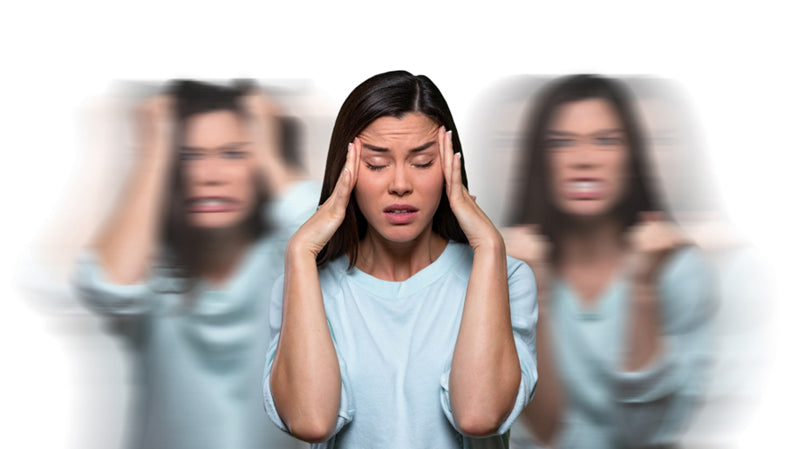Depression is a widespread mental health condition that affects millions of people worldwide. It is characterised by persistent feelings of sadness, hopelessness, and a lack of interest or pleasure in daily activities. While occasional sadness is a normal part of life, clinical depression is a more severe and enduring condition that can significantly impact one's quality of life.
Types of Depression:
Depression encompasses several distinct forms, each with its unique characteristics. Common types of depression include:
Major Depressive Disorder (MDD):
Major Depressive Disorder, often referred to as clinical depression, is marked by persistent and severe depressive symptoms that last for at least two weeks. These symptoms interfere with daily functioning and may include changes in appetite, sleep disturbances, and thoughts of self-harm or suicide.
Persistent Depressive Disorder (PDD):
Persistent Depressive Disorder, also known as dysthymia, involves chronic, low-grade depression that persists for at least two years. Symptoms are less severe than MDD but are long-lasting and can disrupt daily life.
Bipolar Disorder:
Bipolar Disorder is characterized by alternating episodes of depression and mania, a state of heightened energy and mood. During depressive episodes, individuals experience the same symptoms as those with MDD.
Seasonal Affective Disorder (SAD):
Seasonal Affective Disorder is a type of depression that occurs seasonally, typically during the fall and winter months when there is less natural sunlight. Symptoms often include low energy, oversleeping, and weight gain.
Common Symptoms of Depression:
Depression presents a range of emotional and physical symptoms, and individuals may experience a combination of the following:
Emotional Symptoms:
- Persistent feelings of sadness, emptiness, or hopelessness
- Loss of interest or pleasure in previously enjoyed activities
- Irritability or agitation
- Difficulty concentrating or making decisions
- Feelings of guilt or worthlessness
- Thoughts of death or suicide
Physical Symptoms:
- Changes in appetite and weight (either significant weight loss or gain)
- Sleep disturbances (insomnia or excessive sleep)
- Fatigue or lack of energy
- Aches and pains without a clear physical cause
- Digestive problems
- Slowed movements and speech
Causes of Depression:
Depression is a multifaceted condition influenced by various factors, including:
Biological Factors:
- Imbalances in neurotransmitters like serotonin and norepinephrine in the brain can contribute to depression.
Genetics:
- A family history of depression may increase an individual's susceptibility to the condition.
Environmental Stressors:
- Experiences such as trauma, loss of a loved one, chronic stress, or major life changes can trigger or exacerbate depression.
Diagnosis:
To diagnose depression, a healthcare professional conducts a thorough assessment, including clinical interviews and self-report questionnaires. The criteria outlined in the Diagnostic and Statistical Manual of Mental Disorders (DSM) are used to determine the presence and severity of depressive symptoms.
Treatment Options:
Treatment for depression is tailored to the specific type and severity of the condition. Common approaches to managing depression include:
Psychotherapy:
- Cognitive Behavioral Therapy (CBT) is often employed to address negative thought patterns and promote healthier coping strategies.
Medications:
- Antidepressant medications, including selective serotonin reuptake inhibitors (SSRIs) and serotonin-norepinephrine reuptake inhibitors (SNRIs), can help alleviate symptoms.
Lifestyle Changes:
- Regular exercise, a balanced diet, adequate sleep, and stress management techniques can all play a role in managing depression.
Support Networks:
- Building a strong support system through friends, family, or support groups can provide emotional assistance during the recovery process.




Leave a comment
All comments are moderated before being published.
This site is protected by hCaptcha and the hCaptcha Privacy Policy and Terms of Service apply.